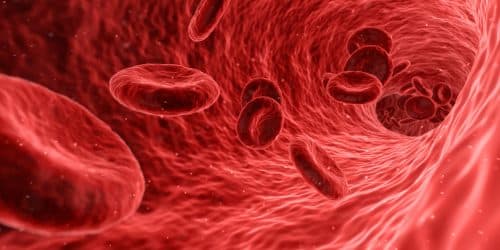Nanopolymer shows potential to prevent heart failure by reducing the level of inflammation and plaque in the heart and blood vessels

Researchers from Ben-Gurion University of the Negev and the Sheba Medical Center have developed a new method to treat atherosclerosis and prevent heart failure, using a bio-clinical polymer that reduces plaque in the arteries and inflammation in the vascular system.
According to the 2015 Lancet Global Burden of Disease report, atherosclerosis causes 56 million deaths per year worldwide. The arteries are lined with a thin layer of cells called "endothelium", which maintains their shape and smoothness and maintains normal blood flow. Arteriosclerosis begins first of all with damage to the endothelial cells and is caused by high blood pressure, smoking or high cholesterol levels.
When there is inflammation in the endothelial cells, they create molecules called "I-selectin", which lead to an area of white blood cells (monocytes) that cause plaque accumulation in the arteries.
"The polymer we developed, which targets E-selectin, reduces the existing plaque and prevents the formation of additional plaque and inflammation, thus preventing arterial thrombosis, ischemia, myocardial infarction and stroke," says Prof. Ayelet David From the Department of Biochemistry and Clinical Pharmacology at Ben-Gurion University of the Negev.
The innovative nanopolymer has several advantages. First, it repairs damage already done to the arteries and strengthens the heart muscle. Also, the polymer adheres to the damaged tissues and does not harm healthy tissues, so it has no side effects. This, in contrast to statin, currently the leading drug for the treatment of arteriosclerosis, which has a number of known side effects.

The new polymer, which has been patented and is in a pre-clinical phase, was tested on mice and yielded positive results. In the study, submitted for publication, the researchers treated mice suffering from atherosclerosis with four injections of the new bio-clinical polymer, and examined the change in their arteries after four weeks.
"We were amazed by the results," says Prof. Yonatan Lior, director of the Vascular Research Institute at the Sheba Medical Center and lecturer in cardiology at Tel Aviv University. "The heart muscle activity of the treated mice improved miraculously, they had less inflammation and the thickness of their arteries was significantly reduced."
"You can say that this is the first result of its kind", adds Prof. Lior. Although there are several treatments for multiple sclerosis today, none of them can reverse damage that has already been caused and improve the function of the heart muscle, as this polymer manages to do."
"During the production of the polymer, we were able to achieve binding to I-selectin at a level of strength similar to that of antibodies. This may explain the high level of efficiency we saw," adds Prof. David.
Prof. David and her colleague Prof. Yonatan Lior believe that the polymer treatment can also be effective for people suffering from diabetes, high blood pressure and other age-related diseases. "In view of this, the new polymer treatment could have life-changing effects for millions of people," say the researchers.
"Now we are looking for a pharmaceutical company that will advance our polymer treatment to the next stages of drug development and finally marketing," says Dr. Ora Horowitz, senior vice president for business development at B.G. Negev Technologies, the technology commercialization company of Ben-Gurion University in the Negev. "We believe that this treatment has the potential to help a huge number of people."

One response
From time to time there are publications on the Internet about terrible side effects of the statins, after which a scientific study is published that examines the phenomenon in a scientific way and it turns out that neither bears nor forests.
For example, despite all the articles and emails it has been proven that statins do not cause muscle pain more than a placebo, it has been proven that giving Q10 is not helpful at all for those who complain of muscle pain
But for some reason this myth that statins cause terrible side effects, and that the medicine is Q10 continues to swell.
There are also studies that show positive side effects of statins, for example a scientific study that statins help and improve sex life and erection in men - for some reason this remains only in the scientific press.
Maybe because statins are a drug that is given to many people, for the prevention of a disease that is not yet felt, people do not understand so much why they are receiving it and it is a comfortable platform for spreading these myths.
A similar thing happened and is happening to aspirin (one of the miracle drugs invented by science, which every time a new advantage is discovered), to Prozac and other anti-depressants (with the encouragement of the Scientology sect) and also to food products such as milk, gluten and more.